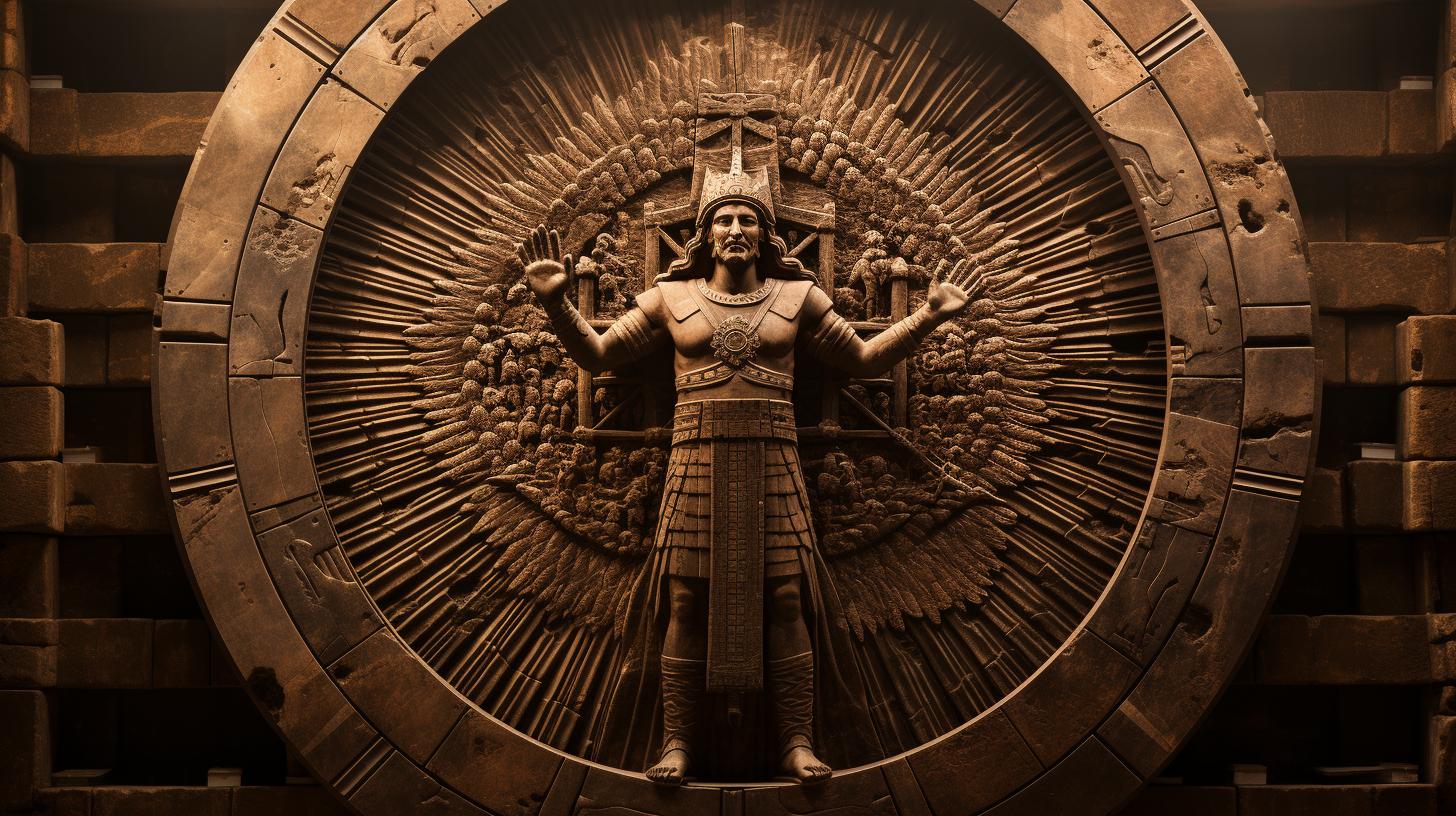Unveiling the Truth: The Myth of Adapa Explored

The myth of Adapa holds a significant place in Sumerian culture, portraying the story of a wise man blessed with intelligence by the god Ea. This ancient tale revolves around Adapa’s encounter with the South Wind, ultimately leading him to the court of Anu, the god of heaven.
Anu offers Adapa immortality, but a twist of fate unfolds as Adapa chooses to reject this divine gift. This myth not only offers insights into the ancient Sumerian worldview but also raises profound philosophical questions about mortality and the human condition.
The Myth of Adapa in Sumerian Culture
The myth of Adapa holds great significance in Sumerian culture, providing unique insights into their beliefs and worldview. This ancient legend revolves around the central character of Adapa, a renowned wise man hailing from the city of Eridu in southern Iraq.
Let us delve into the various aspects of this captivating myth, exploring its origins, Adapa’s role as a wise man, and his encounter with the powerful South Wind.
The Legend of Adapa: A Brief Overview
At the core of the myth of Adapa lies the tale of a man endowed with tremendous intelligence by the god of wisdom, Ea. Adapa’s wisdom and knowledge garnered him great admiration among the people of ancient Sumer, making him a prominent figure in their culture.
The Role of Adapa as a Wise Man in Eridu
Adapa’s residence in the illustrious city of Eridu granted him a vital role as a respected wise man. His wisdom and teachings were highly sought after, and he played a crucial part in guiding society towards enlightenment and progress.
Adapa’s Encounter with the South Wind
While indulging in his favorite pastime of fishing, Adapa faced a formidable and life-altering encounter with the South Wind. This encounter would propel him into the divine court, leading to a series of unexpected events that would shape the course of his destiny.
As Adapa cast his fishing net into the waters, the South Wind, in a fit of rage, lifted him up and plunged him into the vast expanse of the sea. In his fury, Adapa broke the wings of the South Wind, causing it to lose its ability to blow.
This act caught the attention of Anu, the powerful god of heaven, who summoned Adapa to face the consequences of his actions.
What unfolds next is a gripping tale of celestial intervention, earthly wisdom, and divine judgment.
Adapa receives a crucial warning from Ea, his benefactor, advising him not to consume the food and drink offered in the presence of Anu. Tammuz and Ningishzida, celestial gatekeepers, intercede on Adapa’s behalf, elucidating to Anu that his yearning for immortality was merely a means to attain godhood.
Initially intending to punish Adapa, Anu’s perception changes as he recognizes Adapa’s true desire for divinity. Anu extends an offer of eternal life through the consumption of the bread and water of immortality.
However, Adapa, in a moment of divine wisdom, makes the remarkable choice to decline this celestial gift.
The myth of Adapa weaves a captivating narrative that explores themes of mortality, wisdom, and the complex relationship between gods and humans.
It has been preserved through cuneiform tablets discovered in the library of Ashurbanipal in Nineveh, and its influence can be traced in various ancient texts. This myth serves as a profound reflection of Sumerian culture and presents an enduring enigma for scholars to unravel and interpret.
The Significance and Legacy of the Adapa Myth
The myth of Adapa holds immense significance in Sumerian culture, offering profound insights into ancient beliefs and leaving a lasting legacy in various realms. This section explores the comparative analysis with other ancient myths, delves into the philosophical and moral implications, and examines the influence of Adapa in ancient texts.
Comparative Analysis with Other Ancient Myths
When examining the Adapa myth in conjunction with other ancient myths, intriguing parallels and divergences emerge. Though distinct, certain motifs and themes connect Adapa’s story to similar narratives found in different civilizations.
For instance, the concept of humanity’s fall from grace resonates with the biblical story of Adam and Eve, while Adapa’s journey to the domain of immortality finds echoes in Gilgamesh’s pursuit of eternal life in Mesopotamian literature.
Philosophical and Moral Implications
The myth of Adapa raises profound philosophical and moral questions that continue to captivate scholars and thinkers. Adapa’s refusal of immortality, despite its tempting offer, prompts reflections on the nature of human existence, the pursuit of knowledge, and the complex relationship between mortals and gods.
Moreover, the moral implications of Adapa’s encounter with Anu shed light on concepts such as free will, divine justice, and the consequences of individual choices.
The Influence of Adapa in Ancient Texts
- Adapa’s tale reverberates through the annals of ancient literature, leaving a discernible impact on subsequent texts and beliefs.
- In Mesopotamian mythology, Adapa emerges as a symbol of human wisdom, embodying the valuable knowledge and intellectual prowess bestowed by the gods.
- Adapa’s encounter with the divine court and his rejection of immortality resonate in later literary works, shaping narratives that contemplate the limits of human aspirations and the ever-elusive quest for eternal life.
- The myth also finds mentions and allusions in various cuneiform tablets and inscriptions, which reveal its enduring significance across different historical periods.
- Furthermore, scholars have extensively studied and analyzed the Adapa myth, unraveling its intricate layers of meaning and shedding light on the societal, religious, and cultural contexts in which it originated.
In conclusion, the myth of Adapa plays a vital role in understanding Sumerian culture and its influence on broader ancient thought.
Its comparison with other myths, examination of philosophical implications, and tracing of its impact in ancient texts further enhances our comprehension of this captivating legend.




















